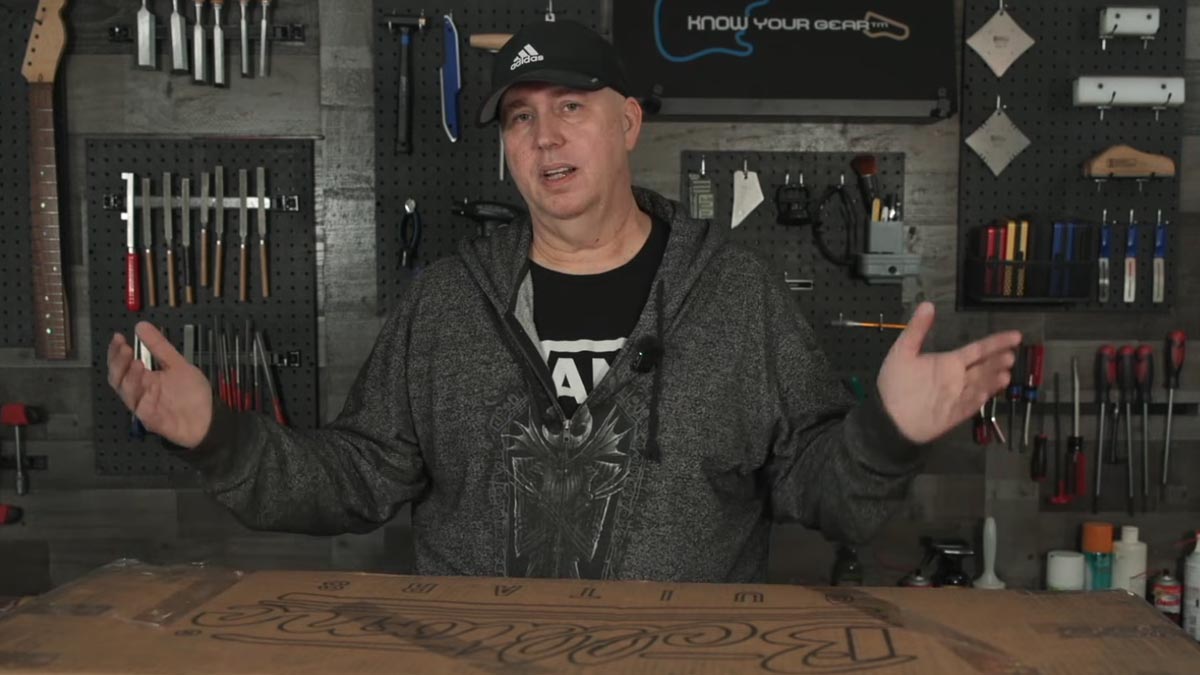Zakk Wylde: “Scales are like the combination on a lock – you can have eight numbers and come up with endless alternatives”
Ahead of the release of career-spanning Black Label Society box set, None More Black, the Wylde one discusses how he crafted his tone and technique, and reminisces on his early recordings with Ozzy Osbourne
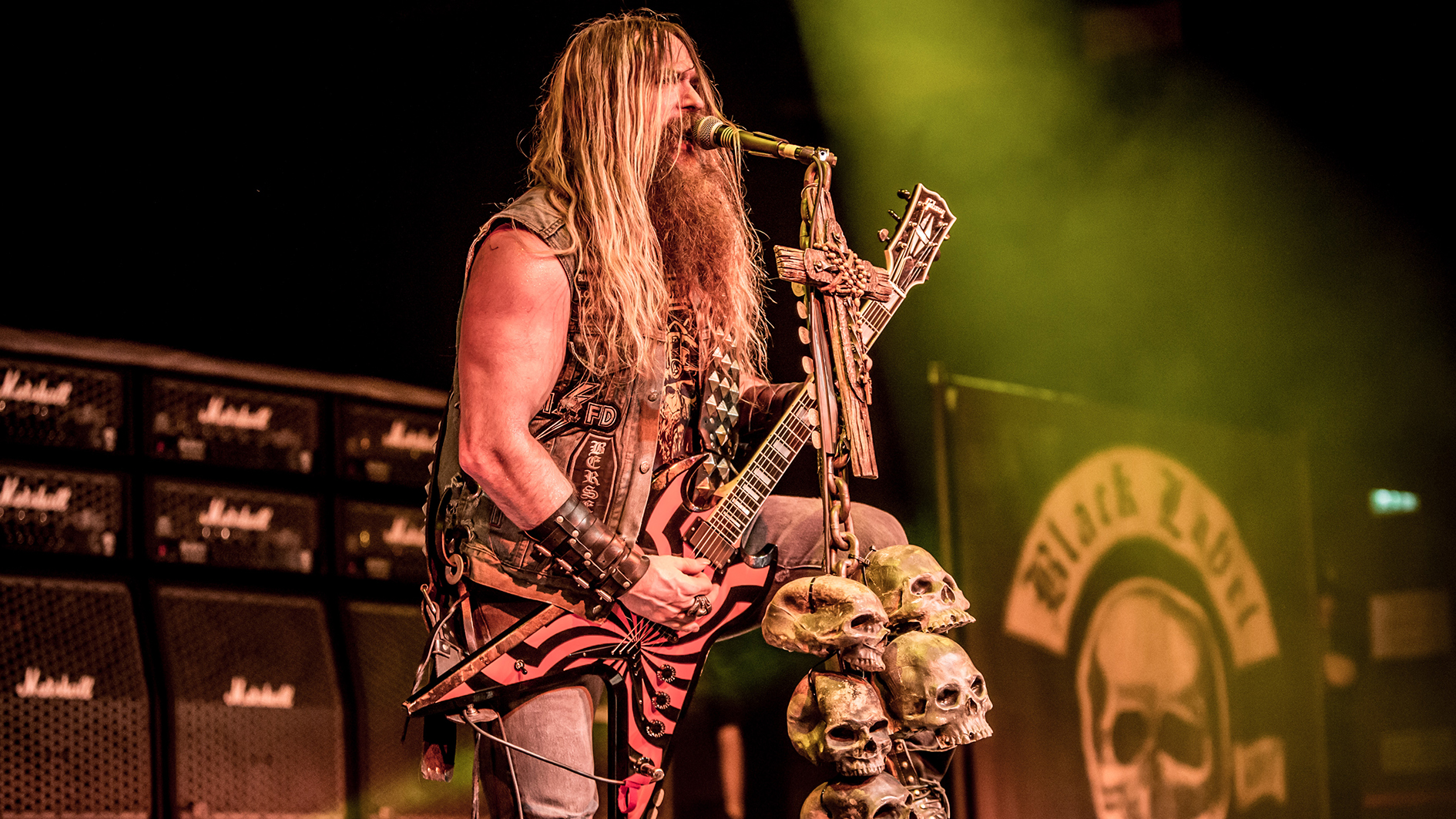
Let’s face it, guitar players don’t really come much more metal than Zakk Wylde. His wide vibrato, blistering three-note-per-string pentatonic runs and squealing pinched harmonics are the mark of a berserker hell-bent on sonic warfare – the very epitome of brute force. Very few have been able to bludgeon their guitars in such an uncompromising way, and with such dependable results.
In Ozzy Osbourne’s band, he’s been responsible for some of the most memorable riffs and solos over the last three decades, making his debut on 1988’s No Rest for the Wicked as a fresh-faced and beardless 21 year-old.
As the leader of Black Label Society – the band he founded in 1998, which has at points included members of Metallica, Alice In Chains and Type O Negative – he’s become one of the modern architects of biker metal, taking that penchant for Sabbathian blues to new levels of unholy heaviness.
This year sees the arrival of the first BLS box set, which features over 10 pieces of vinyl, a 32-page photo book and more, weighing over 20 pounds. It’s the most all-encompassing release in the band’s history to date, though – as we’ve grown to expect from our years dealing with Zakk – he’s taking it all with a pinch of salt...
“Yeah, it’s remastered, reupholstered, re-edited, re-married, re-everything,” he grins, before giving us a list of other uses that probably won’t be found on the official press release.
“There are so many things you can do with this box set. You can use it as a cutting board to make sandwiches. You can use it as a vase for flowers. You can fight crime with this thing, using it to cave in some criminal’s head. Then you can jump out of your house and actually use it to help your landing. It’s very, very versatile.”
Right now, he’s talking to us from his home studio, The Black Vatican, where he’s piecing together Black Label Society’s 11th full-length record. He’s also excited about the prospect of live shows again, with some dates booked from August leading to a New Year’s Eve concert in Arizona.
All the latest guitar news, interviews, lessons, reviews, deals and more, direct to your inbox!
And as for 2022, he’ll be spending much of it on the road with Ozzy Osbourne, bringing those metal anthems to the masses. With everyone getting vaccinated, he reasons, there’s a lot to be looking forward to – but, at least for the next few months, a boxset weighing roughly the same as two of his old Gibson Les Pauls will have to do.
Here the Wylde one reflects on the riffs and tones of his career to date…
The first BLS album, Sonic Brew, is almost like a halfway house in between the southern rock of Pride & Glory and the down-tuned heaviness that came later...
“Definitely. I always listen back to those tracks and think I must have picked those riffs at the Tony Iommi garage sale, finding them behind some plates or whatever.
“I’d say, ‘How much for this riff over here, Tony?’ and he’d say, ‘That one is 15 bucks!’ That’s where I got all those riffs from. And you said it perfectly – the Sonic Brew stuff was a bridge between Pride & Glory and the BLS albums that followed.”
Even going back to Pride & Glory and your first Ozzy albums, all the key fundamentals of your style were in place, from machine-gun picking to the wide vibrato...
“I was sat with Steve Vai one night and we were talking about when I got the gig with The Boss (Ozzy Osbourne). And I was telling him that I needed to find my own sound to separate me from anybody else. I didn’t want to get compared to other players… so how could I sound more like Zakk Wylde? I just wrote a list of things you can’t do.
If you want to get better, try and write a record using only pentatonic scales. Come up with 10 riffs that are only using those five notes
“If you don’t want to sound like Eddie Van Halen, don’t do any tapping or use the whammy bar or harmonics. I didn’t want people saying I sounded like Yngwie, so that meant no harmonic minor, no sweep-picking or arpeggios.
“If you don’t want to sound like Jimi Hendrix, stay off the Uni-Vibe and don’t play a Strat with a wah-wah. Classical stuff was more Randy’s thing so I stayed away from that. If you don’t want to get compared, don’t play it!”
And after all those stages of reduction, you were left with...
“The only things left were pentatonics and some bluegrass stuff I’d picked up from Albert Lee. I wanted to see how creative I could get by taking all these crayons out of the box. I started with 64 and now I only had four left. So the big test was seeing what I could do with less.
“It was kinda cool because it forced me to do things I might not have done otherwise. That’s when I started to really focus on my own sound, mainly picked pentatonic ideas. When I speak to younger musicians, I always tell them once they’ve learned all the scales, the rest is up to their imagination.
“If you want to get better, try and write a record using only pentatonic scales. Come up with 10 riffs that are only using those five notes. And you might end up writing your own Smoke On The Water, Whole Lotta Love or Into The Void. They are all from pentatonic scales, pretty much.”
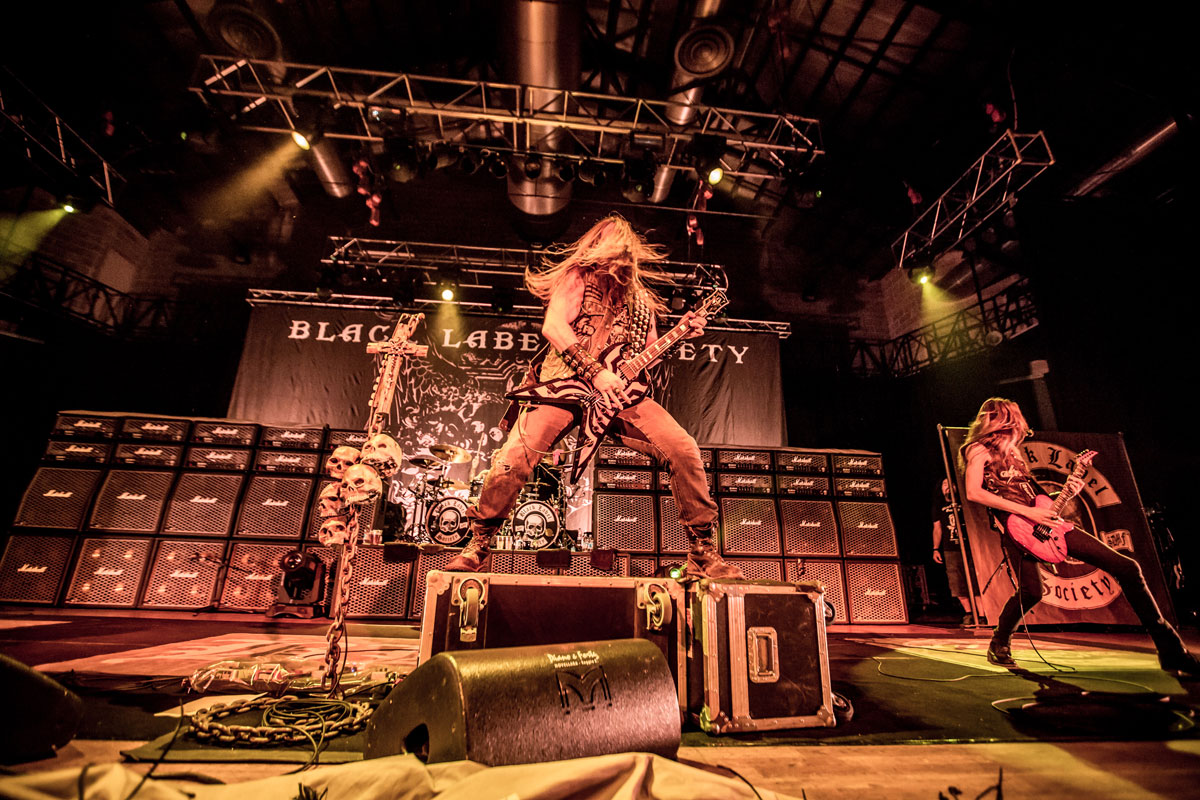
It’s easy to forget how fruitful that five-note scale can be when you start looking at it from different angles...
“For sure. The guys I learned most from are John McLaughlin and Frank Marino, plus your usual suspects. You put your own spin on licks that have been played a million times. You might find a Hendrix riff but instead of playing it forwards, you play it backwards.
“Or you change the combination. It’s like the combination on a lock – if I give you eight numbers, you could come up with endless alternatives. Learn the basics but the rest is up to you. No one can teach you that. It’s for you to find out and discover.”
Moving on through the BLS discography, it definitely felt like 1919 Eternal and The Blessed Hellride benefitted from better production and, ultimately, bigger songs...
“I look forward to every record I do. It’s like playing for Manchester United. Whether you won the championship, came close or had a really bad season – when the next one comes, you’re starting all over again and excited about where it’s going to go.
“Will it be another rough season? Who knows, but you go in positive and feeling like you’re going to win. But you don’t know what you’re going to write. And sure, the production could’ve been better on this one or that one, but I go in with the best intentions.
“I think it’s the same for Elton John, Fleetwood Mac, Sabbath or anybody. When Led Zeppelin were going in to record In Through The Out Door, they were hoping to make the best Zeppelin album of them all, with the intention of smoking all of it – Led Zeppelin IV included!”
The Boss SD-1 and Ibanez Tube Screamer are the two premium options. It’s like Coke and Pepsi. There are certain standards you can trust in
For a lot of your classic recordings you opted for a Boss SD-1. What made you choose that pedal over something like a Tube Screamer?
“Those are the two premium options. It’s like Coke and Pepsi. There are certain standards you can trust in. And it’s like with cars, you can go for a BMW or a Mercedes… you’re not going to go wrong with either one.
“For me, back when I was playing clubs, David DiPietro from T.T. Quick and Kenny Dubman from Prophet were guitar heroes of mine. I still keep in touch with them today. And their live tones were absolutely phenomenal and crushing, they played through Marshall JMPs and used the Boss SD-1. So that’s why I started using that. It’s a great pedal, as is the Tube Screamer.”
The SD-1 was, in many ways, the Boss take on the Ibanez...
“Neither of them change the tone of your amp much, they just add more of what you already have – which is what you want, at least for that purpose. I mean, Big Muffs are great too. They serve a different purpose.
“Steve Vai once told me, ‘Zakk, there is no best, it just comes down to what’s your personal favorite!’ That goes for everything, including amp and guitars. If you give Robin Trower a Tele, he’ll still sound phenomenal but he’ll prefer the tone of a Strat.
“That doesn’t make it better or worse, it is what it is. Jimmy Page and Slash almost always play Standards. You don’t really see them with Customs, but personally I always loved the Customs. There is no right or wrong. The same goes for pizza. Do you like it plain or with garlic or pepperoni? To be honest, I’ve never run into a wrong pizza [laughs].”
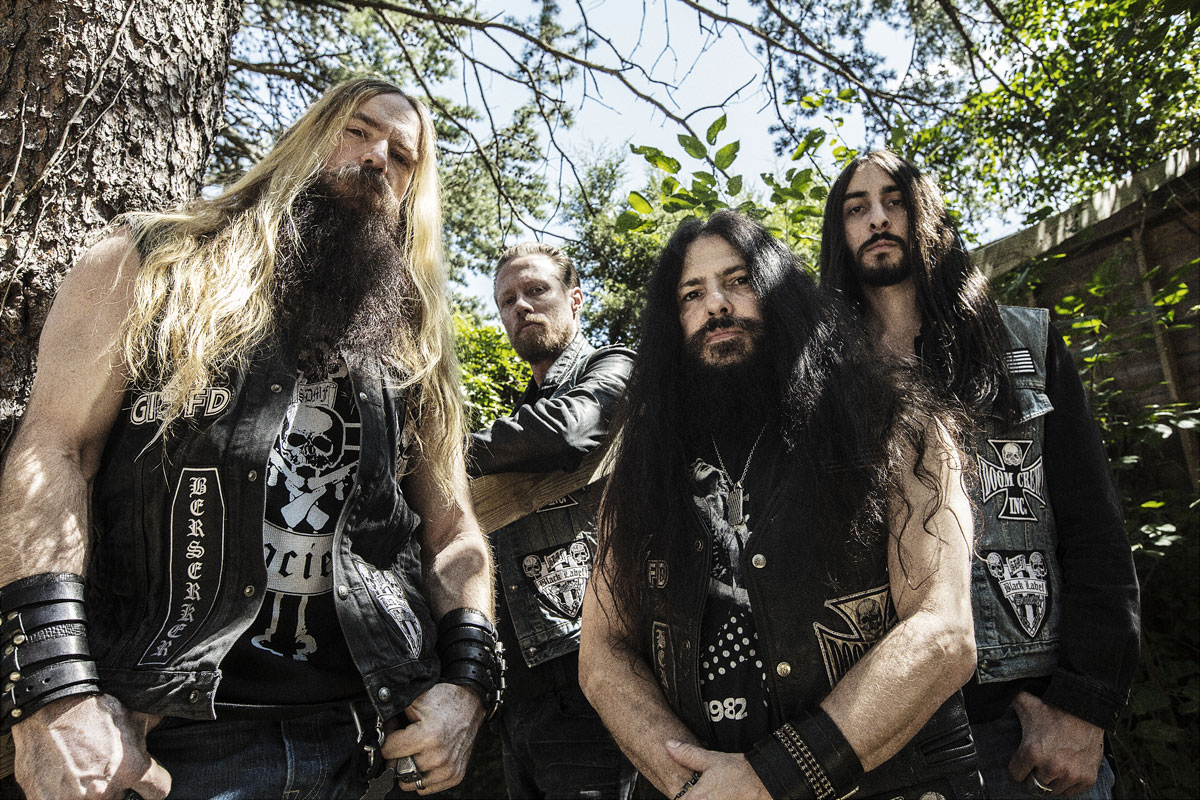
You’ve generally sworn by chorus pedals to fatten your live tones – typically Boss ones before you released your signature model with MXR in 2009...
“I remember when I first heard a chorus pedal going through two amps for that huge wide tone and it was mind-blowing. Some of that influence came from guys like Andy Summers [The Police]. He had that really chimey chorus sound.
“I always loved Randy’s live tone, and his chorus seemed to fatten up in the later live recordings, he seemed to dial it in wider. His live tones were always phenomenal.
“Frank Marino’s live tone had a lot of chorus too. I love straight tones too, you hear Angus and Malcolm, they don’t need anything else... just a big direct sound.
“When I record, I won’t really use the chorus because I’m already doubling the guitar in the tracking, except for maybe certain bits like in Overlord, just to push a certain note or bend. Live, me and Dario have the chorus on pretty much all the time, while in the studio doubling the parts brings its own natural chorus.”
Your signature EVM12L speakers are incredibly high output. When did you realize 300 Watts of power worked better in your cabinets?
“A lot of this stuff I discovered by accident. I remember plugging into a spare cabinet and thinking, ‘Man, this sounds really fat and tight!’ We took off the back and saw it had higher output speakers. Again, there is no right and wrong. 25-Watt speakers sound great for certain things as well.
I still use Wylde Audio amps live all the time. It’s just a matter of us mass-producing them
“It was the same when I tried EMG pickups. I had a guitar student over with me and was playing my cream Les Paul with PAFs in it, going through a Marshall ‘79 combo. My student was playing a Fender Mustang, which is more of a thin-sounding guitar, with EMG pickups.
“When he plugged into my amp, I was like, ‘Wow… that’s what this amp is supposed to sound like!’ I couldn’t believe the amount of clarity and attack. Every note came out perfectly.
“It was almost as if when he plugged in his guitar, someone took a blanket off the speakers. When I plugged my Les Paul back in, it all sounded mushy and dirty again, with no definition. And that’s the moment I was sold on EMGs. I heard the difference and within one minute I was like, ‘Okay, I’m a believer!’”
So what’s next for Wylde Audio – the guitars seem to be doing well but did the amps ever make into production?
“I still use the amps live all the time. It’s just a matter of us mass-producing them. Nowadays, people use plugins, Fractals, all kinds of things, so there’s a lot [to consider].
“But yeah, I still use those amps. I think [when we do release them] it will be the practice amps first, before we start putting out the heads and cabs and stuff like that.”
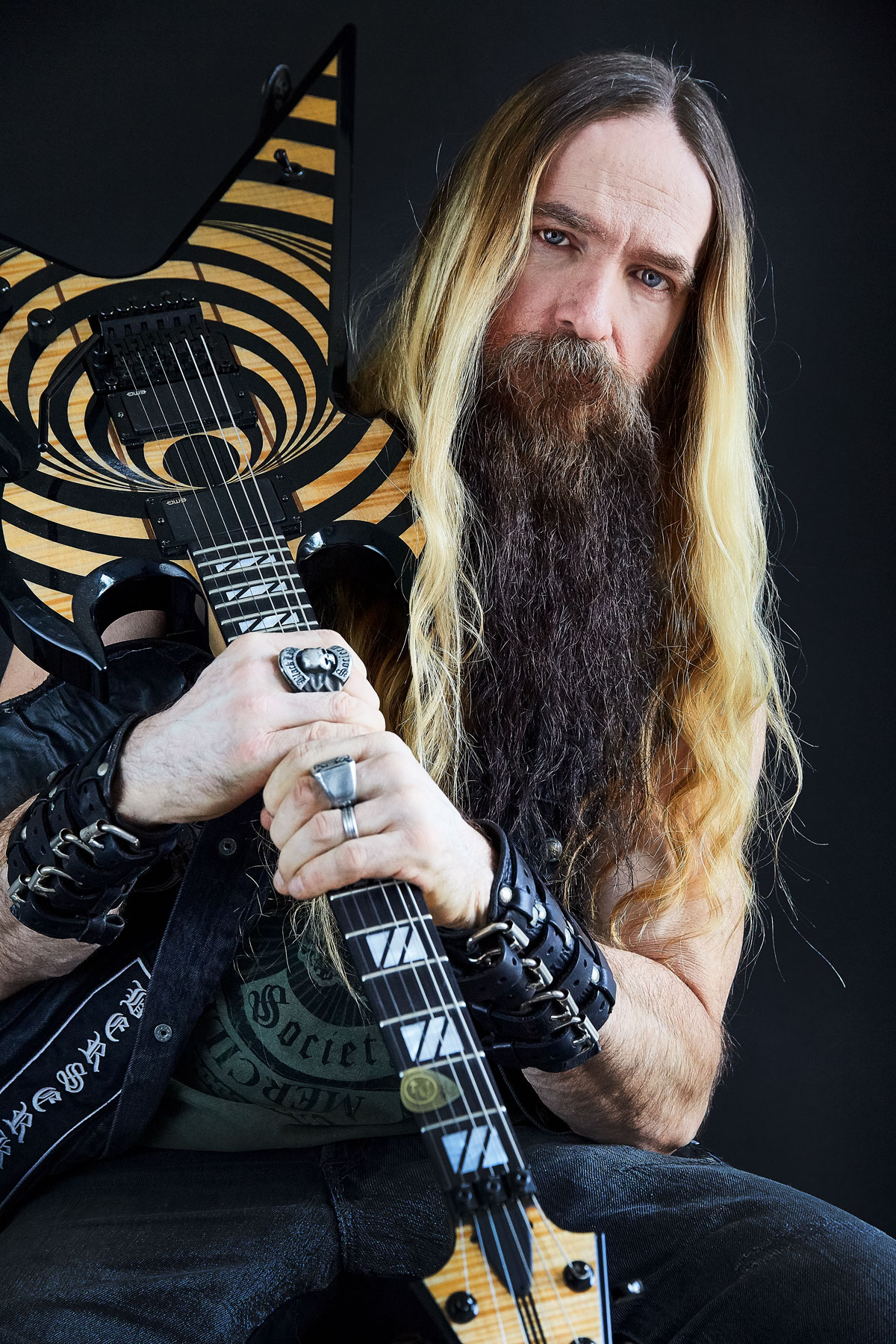
Interestingly, you were using Lee Jackson Metaltronix amps until you got the Ozzy gig and switched to Marshall...
“It was [producer] Keith Olsen who got me into Marshall. We went over to Keith’s studio, Goodnight LA, and he asked me what tone I was hearing. I played him Ronni Le Tekrø’s tone on 10,000 Lovers by TNT and said, ‘Listen to how amazing the guitars sound!’ You could hear all the bottom end so clearly.
“So he plugged me into a Marshall JCM800 combo, but we used it like a head, connecting the speaker outputs to a 4X12. We double tracked everything like that. I remember playing the Miracle Man riff while Keith carried on EQing it, and then we’d A/B it against 10,000 Lovers.”
And apparently that was the combo John Sykes used on Whitesnake’s 1987?
“Yeah, that’s what I was told. Keith had a Les Paul there too, and asked if I wanted to use it, but I had my own cream Les Paul with the bullseye, The Grail. So we used my guitar with an SD-1 in front going into the 800.”
Speaking of Miracle Man, that opening economy lick in the solo is one of your most legendary. What do you remember about writing that?
“That bit is played on the B and E strings and goes back to Saint Rhoads. Whenever people ask me about his legacy, it’s all about his writing. Sure he was the whole package, with technique and tone, but it was his writing that stood the test of time. All the guitar players we love are the ones who could write as well as play.
I could play any of Randy’s solos and you’d be able to name the song. The same goes for Hotel California or Stairway to Heaven. That’s how phenomenal those players are
“I could play any of Randy’s solos and you’d be able to name the song. The same goes for Hotel California or Stairway to Heaven. That’s how phenomenal those players are.
“So writing that one, I would sit there with the backing track coming out of a boombox and piece together each section until it was something I was really happy with. You have to remember, a solo should be part of the song.”
Similar things could be said of your No More Tears solo. What do you remember about recording it?
“The weird thing was I did it in one take. I remember being at A&M [Records] and I had the piano bit down. It reminded me of Pink Floyd and The Beatles, plus Elton John’s Funeral For A Friend and stuff like that. We had that bit and then got to the solo. I think I was just jamming!
“There’s the structured pentatonic thing at the very end, but it was pretty weird because I only did it once. I remember saying to everyone, ‘Let me try it again!’ and they were like, ‘Na, it’s cool as it is.’ That song is one of very few on that record where I didn’t double the guitars... it’s all just one guitar for those rhythms.”
Ozzy got you a 1957 Gibson Les Paul Junior as a birthday present early on. We’re guessing you’d never dream of selling that one…
“Especially because The Boss got it for me. I remember we were opening for Mountain and Leslie West had the hugest guitar tone. He played a ‘57 Junior, so Ozz got me that for my 21st.
“It will always have a special place in my collection, plus it’s a great-sounding guitar. I’ve kept all my special guitars. People have asked me in the past if I’d sell The Grail or The Rebel and it’s like, ‘Na!’ Those guitars will always be a big part of who I am.
“When we did Ozzmosis, I remember [producer] Michael Beinhorn got me a red ‘58 double-cutaway Junior and I still have that. I still have my ‘65 SG. I’m never gonna get rid of those old guitars.”
![[L-R] Ozzy Osbourne and Zakk Wylde](https://cdn.mos.cms.futurecdn.net/oCUMxnZ6ko43ycR8v7hAU8.jpg)
How is Ozzy doing? You guys are back out on the road next year…
“Hopefully! Ozzy is still hilarious. I remember when he messed his neck up and I went to visit him at the hospital. He had all these flowers in his room and I asked who they were from. And he goes, ‘I don’t know, but all the cards said 'You’re not dead yet’... whoever they’re from, they must not like me too much!’ I was in tears.
“He’s always been hilarious. We were having a blast with the shows, he was singing great every night. So yeah, he’s working hard, getting all his power lifts, deadlifts, benches and squats up to the same amazing numbers they were before he hurt himself.”
What are the biggest life lessons you’ve picked up from all these years working with him?
“The whole thing with him is that he lives it. If he gets knocked down, he’ll get back up and keep ploughing ahead. I remember the whole time we’ve been playing together, if he’s feeling a little sick or whatever, we’d be two songs in and his voice would be smashed...
“We’d be coming up on War Pigs and I’d be wondering if he might cancel or pull the show. And he’d always be like, ‘Fuck this!’ and keep fuckin’ going. And we’d always make it through the show.
“He’d be singing his balls off and I’d be like, ‘Wow… that’s my guy’. He’s my hero because he refuses to quit. He won’t let anything beat him. He’s the best of the best.”
- Black Label Society's None More Black box set is available now.
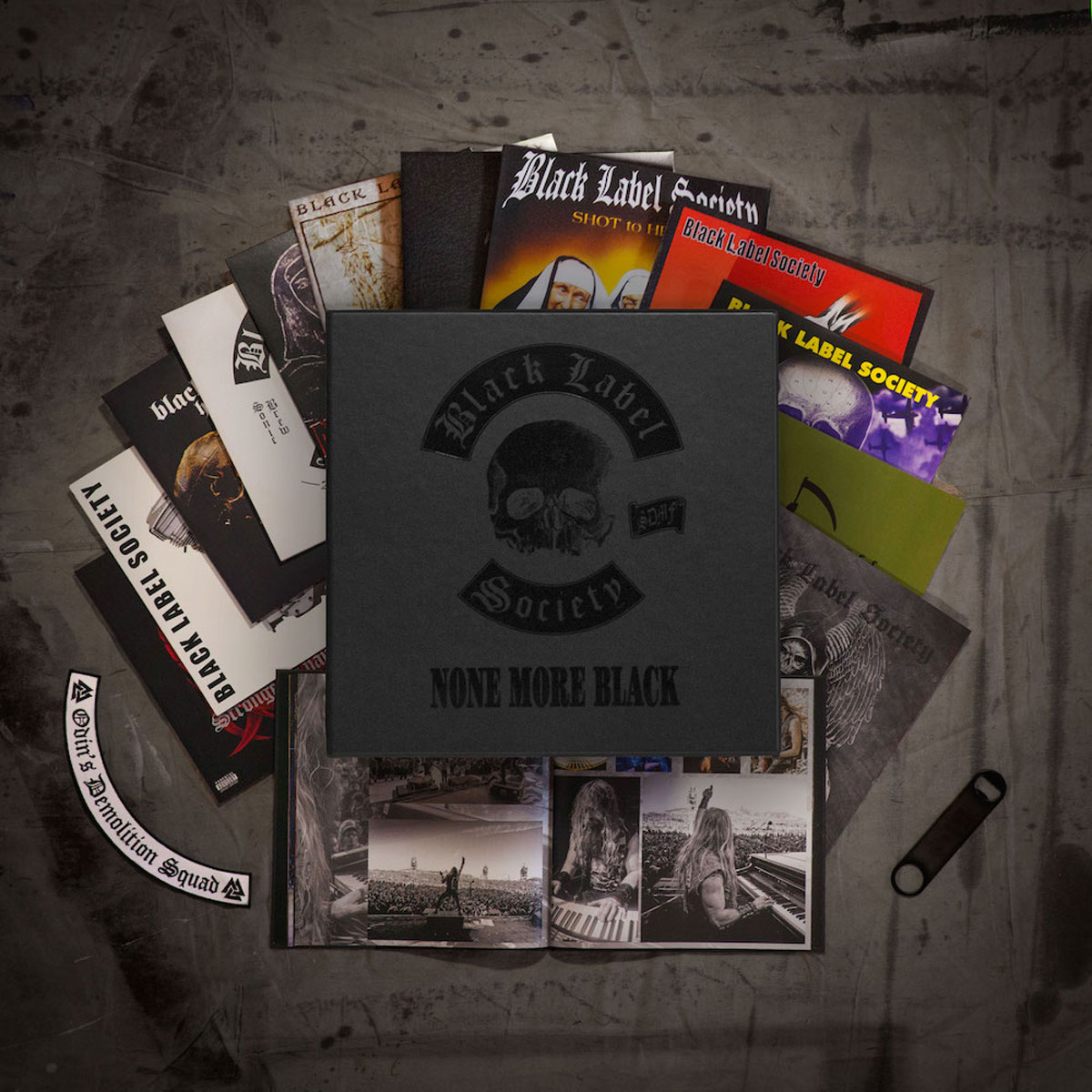
Amit has been writing for titles like Total Guitar, MusicRadar and Guitar World for over a decade and counts Richie Kotzen, Guthrie Govan and Jeff Beck among his primary influences as a guitar player. He's worked for magazines like Kerrang!, Metal Hammer, Classic Rock, Prog, Record Collector, Planet Rock, Rhythm and Bass Player, as well as newspapers like Metro and The Independent, interviewing everyone from Ozzy Osbourne and Lemmy to Slash and Jimmy Page, and once even traded solos with a member of Slayer on a track released internationally. As a session guitarist, he's played alongside members of Judas Priest and Uriah Heep in London ensemble Metalworks, as well as handled lead guitars for legends like Glen Matlock (Sex Pistols, The Faces) and Stu Hamm (Steve Vai, Joe Satriani, G3).


